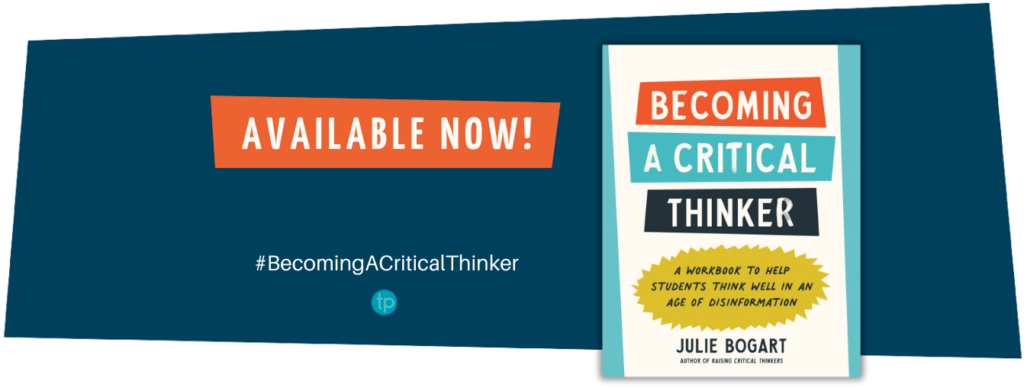Good Thinkers > Good Students

In our efforts to create a context for learning, don’t be seduced by the idea of raising “good students.” Good students learn the material, pass the courses, obey the rules, complete the assigned pages, move ahead through predetermined increments of “learning acquisition,” and fulfill your objectives.
“Good thinkers,” on the other hand, can be a pain in the home educator’s behind! They will challenge the reasonableness of a particular course of study, will camp on one idea until they’ve exhausted it (and you!), will ask questions (sometimes endless questions with greater and greater detail required to answer them), show persistence in one particular line of inquiry while not giving a rip about any other (especially if the other topics feel unrelated to the current area of fascination), and they can appear argumentative.
- Good students receive information so they may get credit for the course of study.
- Good thinkers consume information so that they generate understanding.
- Good students study information to pass a test.
- Good thinkers put their findings to the test.
- Good students forget the information once the subject is “completed” and credit is earned.
- Good thinkers retain what they learned because they know they will need it for use in their real lives.
- Good students reduce the complexity of a topic by organizing it into the essential bullet points.
- Good thinkers poke at the topic until they find the inconsistency or problem within it, creating a morass of complexity.
- Good students read the assignments.
- Good thinkers read widely.
- Good students don’t argue with experts.
- Good thinkers argue with anyone.
- Good students master a particular set of terms to use in papers.
- Good thinkers develop a rich vocabulary that becomes an organic feature of that student’s language use.
- Good students quote the insights of others in their papers.
- Good thinkers generate insight.
- Good students remember some of what they studied.
- Good thinkers remember what they learned.
- Good students learn each subject area as though unrelated to the next.
- Good thinkers correlate this set of ideas with another set from some other course of study, creating an inter-relatedness of all their areas of interest.
- Good students throw away their notes and lessons once they’ve completed the course.
- Good thinkers save their work because they might need it again.
Of course there are good thinkers in public schools and good students at home, and vice versa. But the opportunity to be a “good thinker” is often more easily achieved at home!
Do your best to promote “good thinking.” It takes being willing to let go of your approval of “good student” behaviors so that you will notice and affirm “good thinker” ones instead.



















[…] We want good thinkers over good students @ Brave Writer […]
[…] We Want Good Thinkers Over Good Students […]